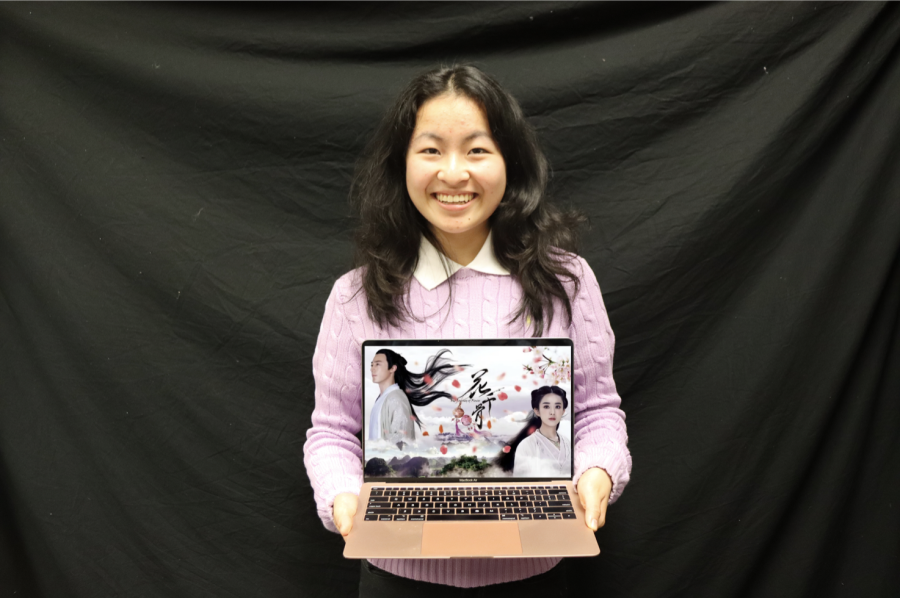Embracing my culture through Chinese dramas
I’ve long since evolved from the girl watching dramas 24/7, but I’m glad I encountered this hobby and further developed my understanding of my culture.
February 1, 2022
A stereotypical binge-watcher, I once watched an entire TV show during finals week. Unlike most other spree-watchers, I spent my hours on a Chinese drama.
I can’t pinpoint the exact moment Chinese entertainment became my guilty pleasure, but I know now that my love for it is an irreplaceable and unique element of myself. Growing up, I would curl up on the sofa every year to watch the annual Chinese New Year’s Eve Program, entertained by top Chinese performers in a four-hour long show. Although surrounded by Chinese language, culture and entertainment, I never considered these traditions my own.
In the summer of 2015, I began watching the drama “Journey of the Flower” after glimpsing an episode airing on Chinese cable TV. Something about the drama captivated me; from then on, every evening at 5:30 p.m., I would shove my dinner down and rush to the TV to watch the episodes. Perhaps it was the sword-riding, the forbidden teacher-student romance, the acrobatic martial art fight scenes or the tortuously cliffhanging plot that drew me in. My sixth-grade heart grew emotionally attached to everything the protagonist experienced, from blissful ignorance of the world to the pain of betrayal, all illustrated through lyrical, poetic idioms. The imaginary realm was entrancing in a uniquely oriental way, with traditional hanfu and majestic scenery. This was the first time I had watched any Chinese drama of my own volition, and I was hooked.
Besides stunning visuals and even better stories, Chinese dramas educate me. Wuxia, my favorite genre by far, depicts the fictional adventures of martial arts heroes. More effective than my weekly Chinese classes, wuxia helped me understand the core Chinese values. In wuxia dramas, the older the character, the more powerful their martial arts are, resulting in 70-year-olds leaping gracefully from tree to tree or defeating enemies with a single flick of their wrists. I was perplexed. Shouldn’t their bodies have deteriorated? Over time, I realized this reflected the Confucianism values of filial piety, or respecting elders. From modern or war dramas, I learned much of mainland China’s slang and practices. Schoolyard dramas explained China’s college entrance exam system.
Most of my drama-watching occurs during late nights. To not disturb my sleeping family, I turned off the volume and only read the subtitles. Initially, I struggled to understand or even read fast enough, but after reading subtitles for a while, my eyes fluidly breezed over every line. This subtitle-reading expertise led me on a new adventure: reading a Chinese novel. Though tired of asking my parents “what’s this character?” every 10 seconds, I pushed myself through every complicated sentence. I made it through, and to this day, it is one of my proudest achievements.
I’ve long since evolved from the girl watching dramas 24/7, but I’m glad I encountered this hobby and further developed my understanding of my culture.




























































